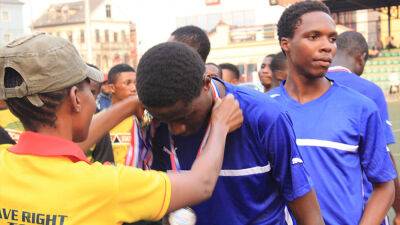'Sportswashing does work' - why regimes bankroll sport
As the group stages of the Qatar World Cup conclude, the sportswashing debate has not gone away.
The controversy dates to 2 December 2010. That was the day FIFA, the governing body for global football, voted for Qatar to host World Cup 2022.
It's 11 days since the opening ceremony in Doha and the football is in full flow. But it has been overshadowed by criticism of human rights abuses, leading to allegations of sportswashing.
So, what is sportswashing? And does it work?
Essentially, it is laundering the reputation – or softening the image – of an individual, organisation or a country through the medium of sport.
Stephen Cockburn is Amnesty International’s Head of Economic and Social Justice. He told Prime Time that sport is used to launder a state’s reputation by "buying up huge cultural institutions, whether that's Newcastle United, LIV Golf, Manchester City, Paris St Germain or the World Cup."
"And it's about creating constituencies that will support the country."
Irishman Miguel Delaney is the chief football writer with The Independent newspaper in London. He is in Qatar covering the World Cup and he has already spotted how sportswashing may have worked for the hosts.
"If you want to look at how this works in the most basic way, look at the Richarlison goal for Brazil on Thursday night," Mr Delaney told Prime Time.
"Now, Qatar is forever associated with this great World Cup moment in the way Mexico, or the Azteca Stadium is, where Maradona's run was in 1986. And that's a very powerful thing."
The phenomenon of sportswashing is not new. Some date it back to the Romans, when fights between gladiators were used to distract people from their impoverished existence.
"The reason sportswashing is so popular is that it does work," said







